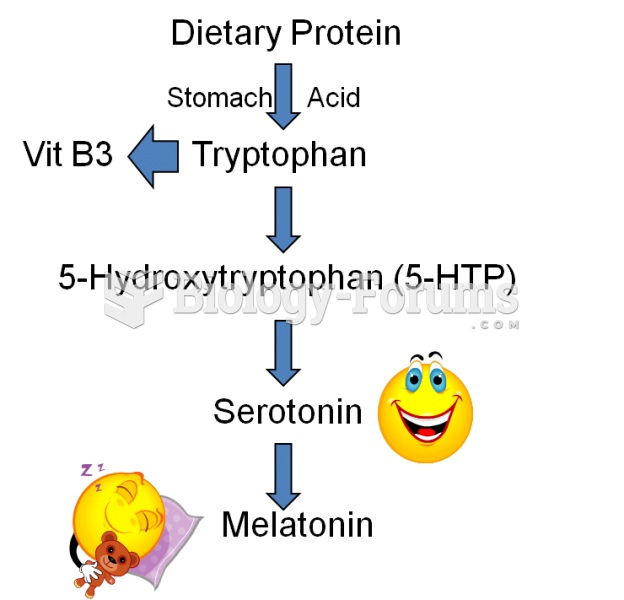Answer to Question 1
C
Feedback
A Withdrawal from CNS depressants such as barbiturates can cause insomnia and must be managed carefully. Barbiturates can also cause tolerance and dependence.
B CNS stimulants, such as amphetamines, should be used sparingly and under medical management. Amphetamine sulphate may be used to treat narcolepsy. Prolonged use may cause drug dependence.
C The benzodiazepines cause relaxation, reduce anxiety, and have hypnotic effects by facilitating the action of neurons in the CNS that suppress responsiveness to stimulation, thereby decreasing levels of arousal.
D Tricyclic antidepressants can cause insomnia when discontinued and should be managed carefully. They are used primarily to treat depression.
Answer to Question 2
D
Feedback
A The nurse should not wait another 30 minutes to retake vital signs. The present readings warrant notifying the physician.
B These are abnormal findings. The nurse should not continue with care as planned.
C The nurse should first notify the physician. Administering a stimulant would require a physician's order and may not be what the patient requires. For example, the patient may need a narcotic antagonist rather than a stimulant.
D The nurse should notify the physician, as these are abnormal findings. The patient's respirations are becoming dangerously low at 8 breaths per minute (normal range 12 to 20 breaths per minute). The patient's pulse is low at 54 beats per minute (expected range 60 to 100 beats per minute), and the optimal blood pressure should not be lower than 120/80 mm Hg, but the patient's blood pressure reading is 110/68 mm Hg. The additional assessment findings are also not normal and should be reported to the physician.







